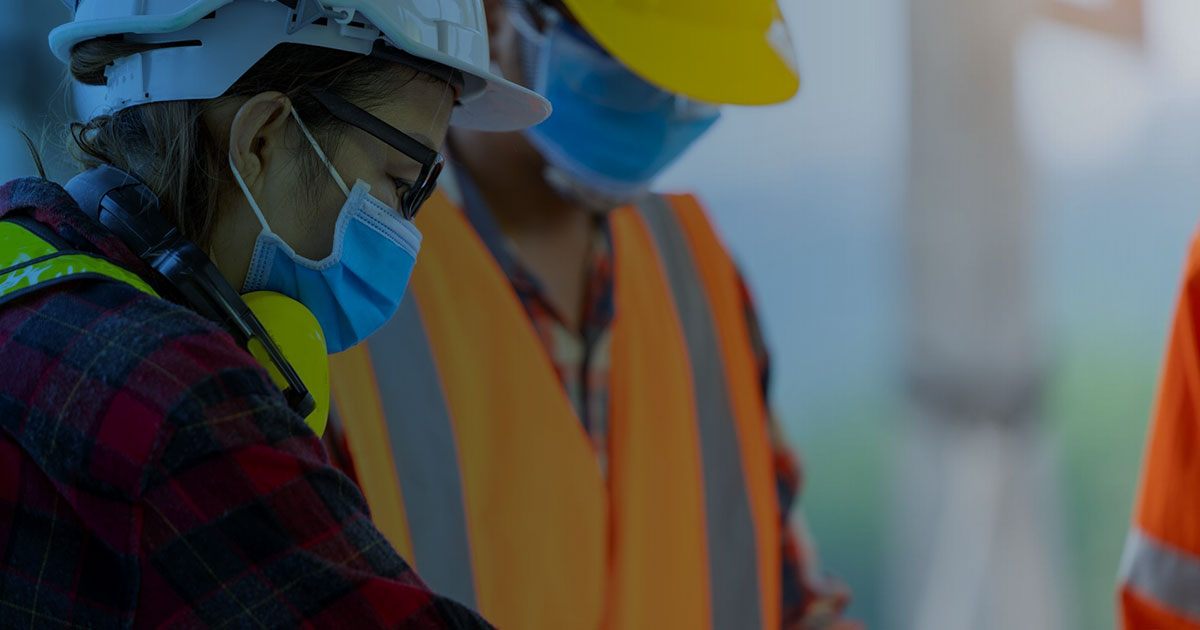
Relevant information on occupational health and safety in Honduras
Occupational health and safety is an issue that has become very relevant in companies today due to the Pandemic that the entire world is experiencing. Due to the Coronavirus (COVID-19), we have had to transform the way we work to prevent the spread and contagion of the virus. In terms of Occupational Health and Safety, the Government of the Republic of Honduras has issued different laws and protocols to prevent the spread and infection in the workplace.
On March 16, 2020, Executive Decree Number PCM-019-2020 was published in the Official Gazette, which approves the Hygiene and Safety Protocol for the Prevention of COVID-19 in work centers and states that it is mandatory. compliance by employers and workers at the national level. Failure to comply with the provisions of the Protocol by an employer will lead to an administrative sanction provided for in the Labor Inspection Law.
Decree PCM-019-2020 also establishes duties for workers, not only for employers. Workers have the duty to inform their employers if they have symptoms of the Coronavirus or any other similar symptom that compromises the respiratory tract prior to entering the workplace.
If symptoms appear in the worker, they are obliged to immediately carry out a laboratory test to check or rule out the spread of COVID-19. The result of this examination must be notified to the employer so that he can take the necessary measures in case the contagion is confirmed.
The Safety and Hygiene Protocol for Work Centers at the National Level in Prevention of COVID-19 establishes measures aimed at workers and employers for the prevention and control of COVID-19, these measures are the following:
- Handwashing with soap and water on a recurring basis, for these purposes, each employer must structure a guide for correct handwashing and its frequency, according to the economic activity of each company.
- The employer is obliged to provide its workers with prevention and hygiene supplies in the workplace, such as hand gel, antiseptic liquid soap, gloves, personal protective equipment and masks when appropriate and any other instructed by the safety authorities. Government.
- Frequently use gel that contains 70% alcohol or another disinfectant promoted by the Ministry of Health, before entering the facilities of your work center, as well as in your different areas or jobs.
- In the cases indicated by the Ministry of Health, by virtue of the type of work that is carried out and implies direct and permanent contact with people infected with COVID-19, they must use gloves, eye protection glasses, clothing and a mask, when removing the aforementioned equipment, internal contact must be avoided, manipulation of the same to avoid the passage of the virus from the hands to the eyes, nose or mouth.
- Masks are permanently and mandatory for workers who present symptoms of COVID-19 and people who have direct contact with them. Once discarded, they must be deposited in garbage containers in a safe way, with a lid that can be opened with a pedal.
- Avoid being in places with poor ventilation and with people who have any symptoms such as: sneezing, coughing and a temperature greater than 38 degrees.
- Maintain greater cleaning hygiene and the use of gel, soap and water in the toilets.
- Give talks to workers regarding the prevention of the spread of COVID-19.
- Establish monitoring, control and follow-up mechanisms so that workers who present symptoms and/or are infected from the contracting companies that provide services to the companies, whether permanent or temporary, do not enter the workplace, and can be treated in a timely and as required by law.
- Distancing or isolation of people:
- Respiratory etiquette rules.
- Cleaning and disinfection of objects and surfaces.
- The use of brooms in high-risk areas should be avoided as much as possible.
- Double cube techniques will be used.
- The material used that is disposable, will be placed in a waste container with a lid and labeled with the precise warnings. Surfaces must be cleaned with solutions recommended by international organizations and proven effective against Sars-CoV-2. Among the recommendations are:
- For personal items (screens, phones, tablets)
- Use at least 70% alcohol solution, spray and air dry or wipe with a cloth and air dry.
- For work surfaces, floors, walls, doors, desks and other surfaces:
- Use a household bleach solution (5%) diluted as follows: Four teaspoons of bleach per liter of water, spray or rub in and leave for at least 10 minutes.
- Use quaternary ammonium at 5% dilution, follow the instructions of each supplier for its dilution in case it is more concentrated. Wait at least 10 minutes for it to act.
- Use commercial use hydrogen peroxide at 3% and let it act for at least 5 minutes.
- For any product used to clean surfaces and disinfect SARS CoV-2, the indications for use should be consulted, since the concentration of the active components may vary from industrial to domestic presentation and from brand to brand.
- Handling and use of Personal Protection Equipment.
- Government Offices and Customer Service Centers
- Maquila Sector
- Hardware Industry
- Automotive Maintenance Workshops for Supply Chain
- Restaurant and Cafeteria Industry
- Construction Sector
- Supermarket Industry
- Meat Sector (Beef and Pork)
- Sugar Industry
- Financial sector
- Poultry Sector
- Household Items Wholesalers
- Soft Drinks and Beverages Sector
- Insurance Sector
- Patisseries and Bakeries
- Agricultural sector
- Tobacco Sector
- Supply Chain
- Call Centers
- Squares and Shopping Centers
- Petroleum Products Distributors
- Hairdressers and Barbers
- Religious Practices and Activities
- Dairy Sector
- Pharmacy Industry
- Forest Sector
- Telecommunications Companies